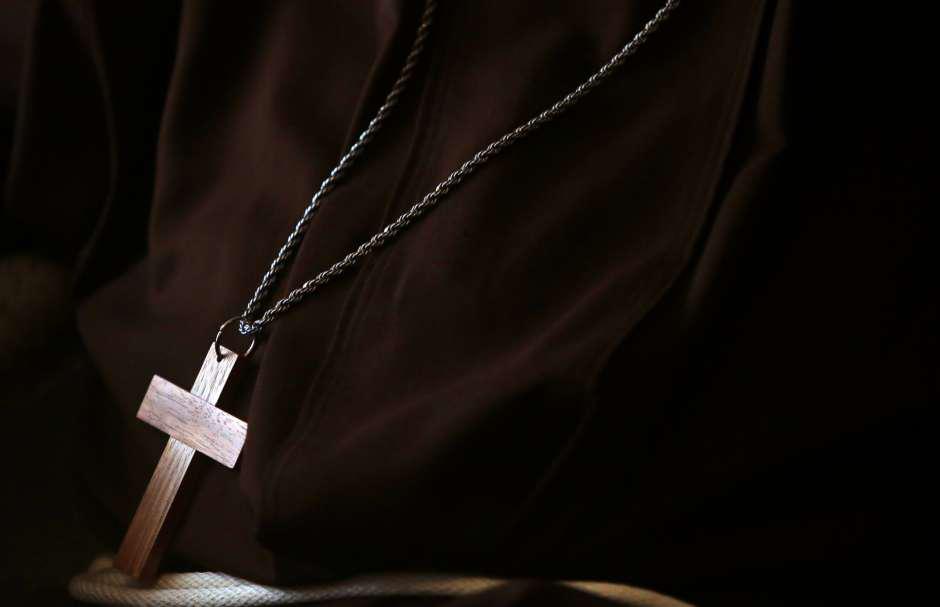|
Catholicism. Power. And the way abuse echoed for generations in my family.
By Leslie Contreras Schwartz
In 1999, during my last semester at the University of St. Thomas, I studied Spanish and Mexican culture in Merida, Yucatan, with a priest as one of my teachers. Father Jack Hanna, a charismatic and charming priest, taught us about Mayan culture and the joy of the Spanish language. Over those three months, I had no reservations in living in a house with him and the other dozen students. A few weeks ago, the Galveston-Houston diocese released a list of priests "credibly accused" of sexual abuse. Hanna's name was on the list. My reaction was a mix of anger and shame. I remembered commenting frequently to a friend that I thought it was inappropriate how he singled out a male student, frequently and openly caressing his back. I remember that I thought it unusual how laid-back Hanna was: He drank beer freely and ignored our drinking binges and late-night parties. Ay, jovenes, he frequently said in jest when we tested his limits. Those words horrify me now. And for reasons that go even deeper than my misgivings about him. Because with this accusation, I also recognize sicknesses within the church's culture that have plagued my family for generations: silence and complicity. My mother was born to a 15-year-old sexual assault victim whose family, against the birth mother's wishes, gave the baby — my mother — to Catholic charities for adoption. Her adopted mother planned for my mother to become a nun who'd take care of her in her old age. The woman took care of my mother's basic needs but provided neither love or affection. Worse, the woman was physically abusive, and this abuse was supported and collaborated upon by nuns in our family. In the church's culture, authority was never questioned, especially the authority of people of the cloth and men in general, priests or not — and especially not leaders in the church. My mother was raised to see her abuse as normal. In Catholic school, she was verbally abused or isolated if she spoke Spanish, and like most students, physically punished for transgressions. But the greatest threat to her was a person who kept trying to sexually assault her as a child. When she told a family member, she was brutally beaten and whipped by her mother and other family members — several of whom were nuns. They said they were trying to "chase the devil out of her" and to help her find spiritual cleansing from sin — and that this required tying her down and beating her for hours. The effects of trauma are not limited to the victim. It haunts everyone in a person's close circle, even if they are not privy to the details. When I read the list of priests and saw my former beloved teacher among them, I realized that I too had learned silence as a default mode. Along with factors related to my own relationship with men and boys, that silence made me vulnerable, primed to become a victim myself at 15, and again at 19. I speak from my own experience, and my own family's history, when I say that the time has come to recognize the long dreadful chain in which the most vulnerable are abused in the name of God. I am no longer part of the Catholic Church. A God who condones abuse is not a God I would ever pray to. But I also know that this problem is not unique to the Catholic Church. It exists anywhere where children, congregants or members of a group are taught to respect authority figures to the point of never questioning their actions, of being afraid of being socially and culturally cut off and punished for speaking the truth. I want to end by appealing to victims, who are often left out of the picture in these discussions. I know from my own struggles that an experience like this can be life-shattering, creating a ghost that follows you into adulthood, troubling you with mental illness, addiction or seeking ways to escape. To victims I say: We cannot change the past, but we can protect future generations by creating real change, even when it is only within our own families or circles of friends. We can teach children to respect elders and authority figures while simultaneously respecting themselves, their bodies and their autonomy. We can use our experience of pain and living with trauma to seek new ways of connecting to God or finding spiritual connections through community. We can find ways to enable others to drive out sickness and disease in a cultural system where children have not always come first. But this responsibility should not rest upon the shoulders of victims. We are looking to people in positions of power to start this change. If not in the name of God, in the name of people alone.
|
.
Any original material on these pages is copyright © BishopAccountability.org 2004. Reproduce freely with attribution.
